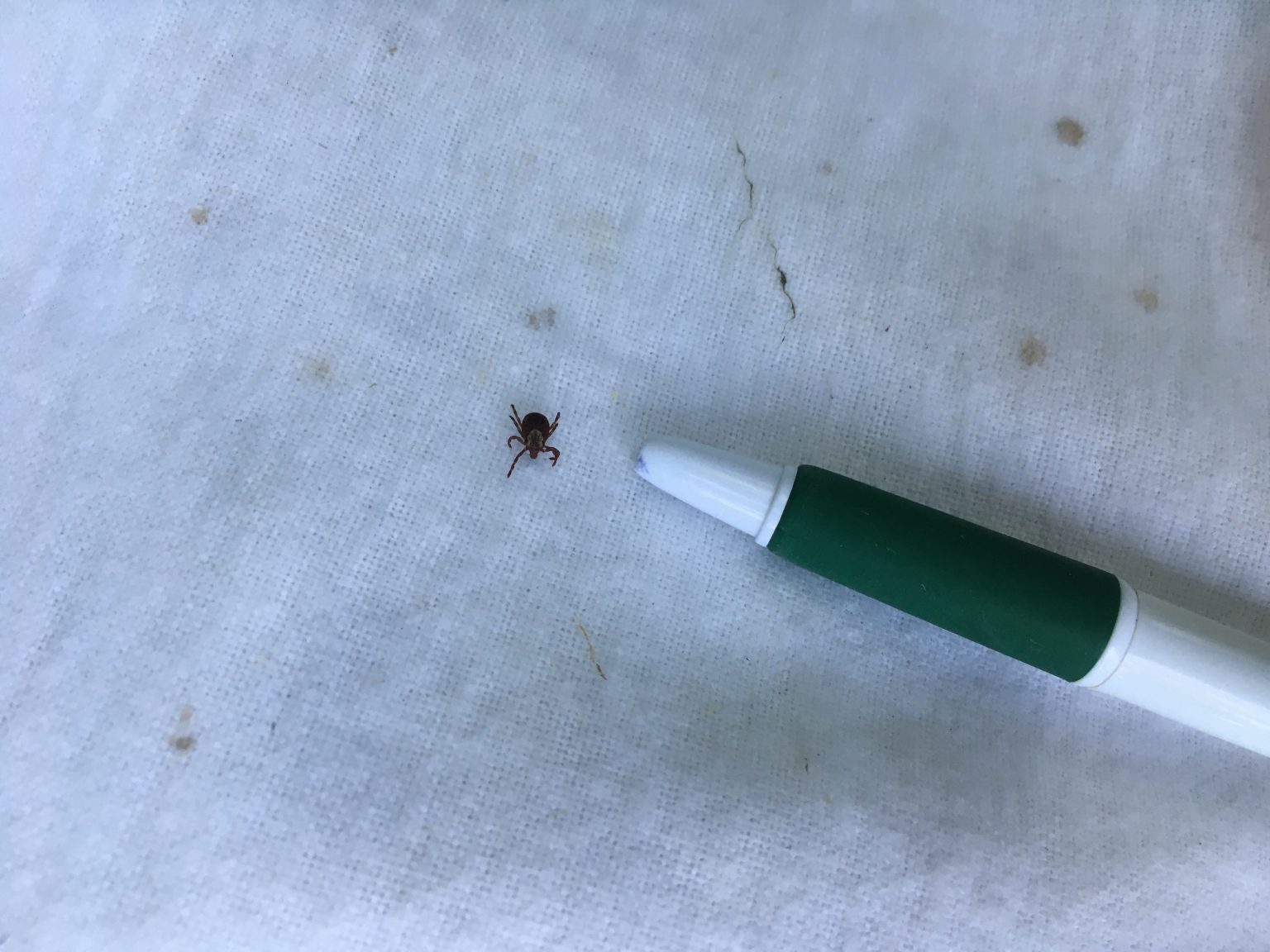TickZoo: The Ultimate Guide To The Wild World Of Ticks And Tick-Borne Diseases
Listen up, folks. If you've ever found yourself scratching your head—or worse, your skin—over those pesky little creatures called ticks, you're in the right place. Today, we're diving deep into the world of TickZoo, a term that's growing in popularity among health enthusiasts and outdoor adventurers alike. TickZoo isn't just a catchy phrase; it's a comprehensive look at the diverse species of ticks and the diseases they carry. So, buckle up and get ready for some eye-opening facts that might just change the way you approach your next hike or camping trip.
Here's the deal: ticks are more than just annoying bugs. They're tiny but mighty carriers of some serious diseases, and understanding them is crucial if you want to stay safe. Whether you're a seasoned hiker, a pet owner, or simply someone who enjoys spending time outdoors, this article is your go-to resource for all things TickZoo. We'll break it down step by step, so you can arm yourself with knowledge and take proactive measures to protect yourself and your loved ones.
By the end of this guide, you'll know everything you need to about TickZoo, from identifying different tick species to recognizing the symptoms of tick-borne illnesses. Plus, we'll share some expert tips on prevention and treatment. So, without further ado, let's jump right in and explore the wild and sometimes scary world of ticks!
- 18 Movierulz Your Ultimate Guide To Streaming Movies Safely And Legally
- Filmify Flycom Your Ultimate Guide To Streaming Movies Online
Table of Contents
- What is TickZoo?
- Common Tick Species Around the World
- Tick-Borne Diseases: The Hidden Threat
- Symptoms to Watch For
- Prevention Tips to Keep Ticks at Bay
- Treatment Options for Tick-Borne Illnesses
- TickZoo and Your Pets: What You Need to Know
- Environmental Factors Impacting TickZoo
- Expert Advice on Managing TickZoo
- Final Thoughts on TickZoo
What is TickZoo?
Now, let's start with the basics. TickZoo is essentially a term that describes the vast ecosystem of ticks and the diseases they transmit. It's like a zoo, but instead of cute animals, you've got these tiny arachnids that can wreak havoc on your health. Ticks might be small, but their impact is huge. They're responsible for spreading diseases like Lyme disease, Rocky Mountain spotted fever, and more. And trust me, none of these are fun to deal with.
In recent years, the TickZoo phenomenon has gained attention due to the increasing number of tick-related cases worldwide. Climate change, urban sprawl, and changes in land use have all contributed to the expansion of tick habitats, making it more likely for humans and animals to encounter them. So, whether you're hiking in the woods or just lounging in your backyard, it's important to be aware of the risks.
Common Tick Species Around the World
Tick Species You Should Know
Not all ticks are created equal. Different species thrive in different environments, and each has its own set of characteristics and behaviors. Here are some of the most common tick species you might encounter:
- Jeff Mason Reuters Spouse The Story Behind The Spotlight
- Hollywood Mp4 Your Ultimate Guide To Streaming And Downloading
- Deer Tick (Ixodes scapularis): Known for transmitting Lyme disease, this tick is prevalent in the northeastern and midwestern United States.
- American Dog Tick (Dermacentor variabilis): This tick is a common carrier of Rocky Mountain spotted fever and is found throughout the eastern United States.
- Lone Star Tick (Amblyomma americanum): Recognizable by the white dot on its back, this tick is known for causing alpha-gal syndrome, a red meat allergy.
- Brown Dog Tick (Rhipicephalus sanguineus): Primarily a threat to dogs, this tick can survive indoors and is found worldwide.
Knowing which tick species are common in your area can help you better prepare for potential encounters. And remember, even if you don't live in a tick-prone region, they can hitch a ride on animals or people and end up in unexpected places.
Tick-Borne Diseases: The Hidden Threat
So, why are ticks such a big deal? Well, it's not just their bites that are annoying—it's the diseases they can transmit. Tick-borne diseases are a growing concern worldwide, and they can have serious consequences if left untreated. Here are some of the most common tick-borne illnesses:
- Lyme Disease: Caused by the bacterium Borrelia burgdorferi, Lyme disease is one of the most prevalent tick-borne illnesses. Symptoms include a bull's-eye rash, fever, fatigue, and joint pain.
- Rocky Mountain Spotted Fever: This bacterial infection can be life-threatening if not treated promptly. Symptoms include fever, headache, and a rash.
- Anaplasmosis: This disease affects white blood cells and can cause flu-like symptoms. It's transmitted by deer ticks.
- Babesiosis: Similar to malaria, this parasitic infection affects red blood cells and can cause fever, chills, and body aches.
These are just a few examples, and new tick-borne diseases are being discovered all the time. That's why staying informed and vigilant is so important.
Symptoms to Watch For
Recognizing the Signs of Tick-Borne Illnesses
One of the biggest challenges with tick-borne diseases is that their symptoms can mimic those of other illnesses, making them difficult to diagnose. That's why it's crucial to be aware of the warning signs. Here are some common symptoms to watch for:
- Fever and chills
- Headache and body aches
- Rash (especially a bull's-eye rash for Lyme disease)
- Joint pain and swelling
- Fatigue and weakness
If you experience any of these symptoms after being bitten by a tick—or even if you suspect you've been exposed—it's important to seek medical attention right away. Early diagnosis and treatment can make a big difference in the outcome.
Prevention Tips to Keep Ticks at Bay
Prevention is key when it comes to TickZoo. While you can't completely eliminate the risk of encountering ticks, there are plenty of steps you can take to reduce your chances of being bitten. Here are some top tips:
- Wear long sleeves and pants when spending time in wooded or grassy areas.
- Use insect repellents containing DEET or permethrin.
- Check yourself, your children, and your pets for ticks after spending time outdoors.
- Shower as soon as possible after coming indoors to wash off any unattached ticks.
- Keep your yard tidy by removing leaf litter and tall grass where ticks like to hide.
These simple measures can go a long way in protecting you and your family from the dangers of TickZoo. And remember, prevention isn't just for humans—your pets need protection too!
Treatment Options for Tick-Borne Illnesses
Getting the Right Care
If you do end up with a tick-borne illness, don't panic. Most of these diseases can be treated effectively with antibiotics if caught early. However, it's important to follow your doctor's advice and complete the full course of treatment, even if you start feeling better. Here are some general treatment options:
- Antibiotics like doxycycline or amoxicillin for bacterial infections.
- Anti-inflammatory medications to manage symptoms like pain and swelling.
- Supportive care to address complications if the disease progresses.
And remember, prevention is always better than cure. So, take the necessary precautions to avoid tick bites in the first place.
TickZoo and Your Pets: What You Need to Know
Your furry friends are just as susceptible to ticks as you are. In fact, pets can bring ticks into your home, putting everyone at risk. That's why it's important to protect your pets from ticks and regularly check them for any signs of infestation. Here are some tips for keeping your pets tick-free:
- Use veterinarian-recommended tick prevention products, such as collars, sprays, or topical treatments.
- Check your pets for ticks daily, especially after they've been outside.
- Keep your yard free of tall grass and debris where ticks like to hide.
- Consult your vet if you notice any unusual symptoms in your pet, such as lethargy or loss of appetite.
By taking these steps, you can help ensure that your pets stay healthy and happy, even in the face of TickZoo.
Environmental Factors Impacting TickZoo
The rise of TickZoo isn't just a random occurrence. Several environmental factors are contributing to the increase in tick populations and the spread of tick-borne diseases. Climate change, for example, has led to warmer temperatures and longer seasons, allowing ticks to thrive in areas where they previously couldn't survive. Urbanization and deforestation are also playing a role, as they disrupt natural habitats and bring humans and animals into closer contact with ticks.
Understanding these factors is key to developing effective strategies for managing TickZoo. By addressing the root causes, we can work towards reducing the impact of ticks on both human and animal health.
Expert Advice on Managing TickZoo
When it comes to TickZoo, it's always a good idea to seek advice from experts in the field. Whether it's your local health department, a veterinarian, or a tick researcher, these professionals can provide valuable insights and guidance. Here are some expert tips to help you manage TickZoo:
- Stay informed about tick activity in your area and adjust your activities accordingly.
- Support research and education efforts to better understand tick-borne diseases.
- Advocate for policies that address the environmental factors contributing to TickZoo.
By working together, we can create a safer world for everyone—humans, animals, and even the environment.
Final Thoughts on TickZoo
There you have it, folks. TickZoo might be a scary concept, but with the right knowledge and precautions, you can protect yourself and your loved ones from its dangers. Remember, prevention is key, and early detection is crucial for effective treatment. So, whether you're planning a hike, a camping trip, or just a day in the park, keep TickZoo in mind and take the necessary steps to stay safe.
And hey, don't forget to share this article with your friends and family. The more people know about TickZoo, the better equipped we all are to tackle it. Together, we can make a difference and create a world where ticks don't rule the roost. Stay safe, stay informed, and happy adventuring!
- Filmyflyco Your Ultimate Hub For South And Hindi Movie Downloads
- Hd Hub 4 U South Your Ultimate Gateway To Highquality Entertainment

Tickzoo. Best photos on

Tickzoo.tv Best photos on

TickZoo A Journey of Creativity, Controversy, and Education